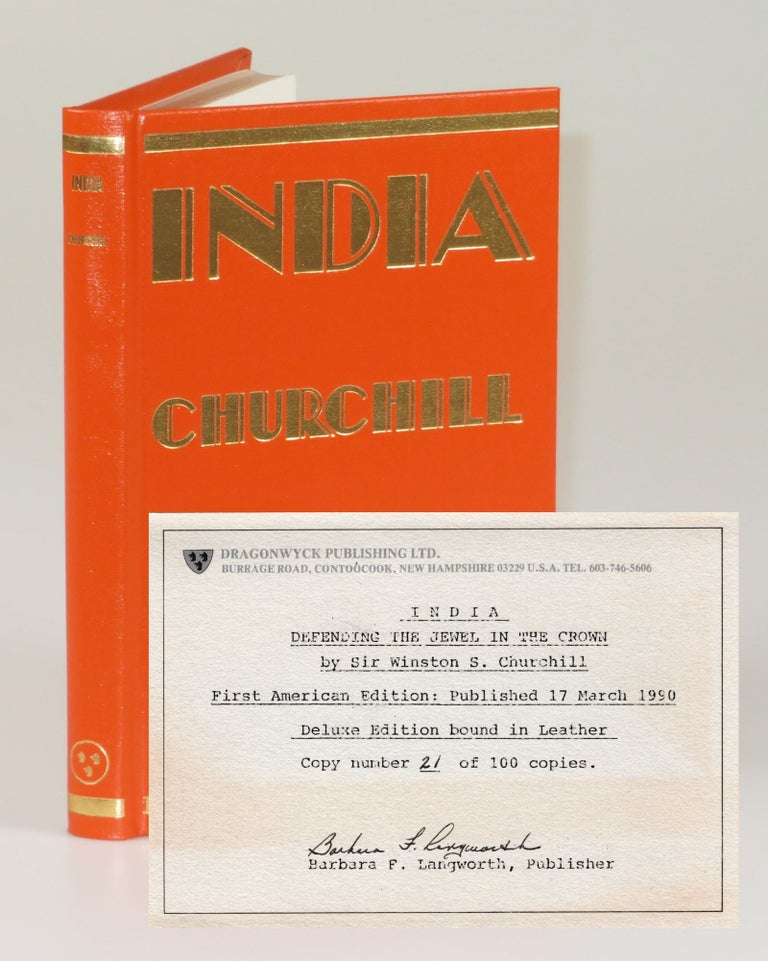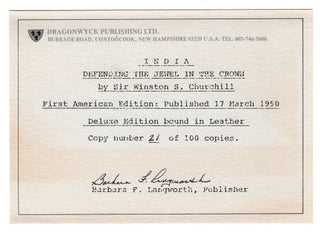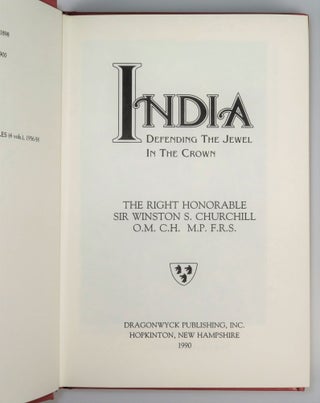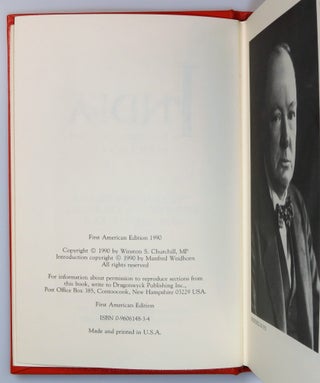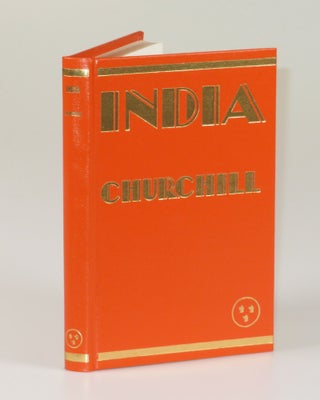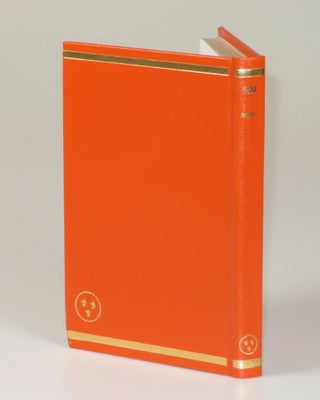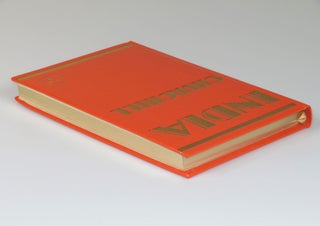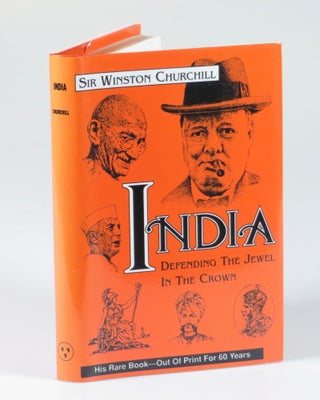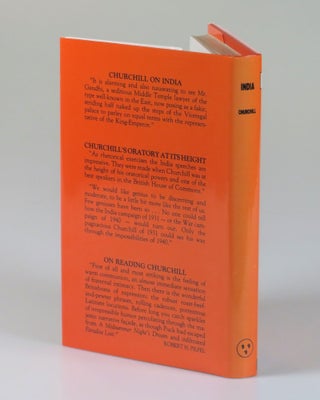India, the quite scarce, finely bound, limited, and numbered issue of the U.S. first edition, copy number 21 of 100
Hopkinton, New Hampshire: Dragonwyck Publishing, 1990. First U.S. edition, only printing, finely bound, limited, and numbered issue. Full leather. This is the quite scarce finely bound limited and numbered issue of the U.S. first edition. First published in 1931, India is a collection of 10 speeches by Churchill as part of his campaign against the India Bill, over which he broke with his party’s leadership. Though his cause was lost, these speeches are considered to contain some of the finest examples of Churchill's rhetorical brilliance.
Atypical for most Churchill first editions, there was no concurrent U.S. first edition. Instead, this U.S. first edition was not issued until 1990. Most copies of the British first edition were bound in orange paper wraps (reproduced within the text of this U.S. first edition). A small number of British first editions were issued in a hardcover binding. Nearly all copies of the U.S. first edition of 1990 were bound in an exacting reproduction of the cloth hardcover variant binding of the British first edition. Only 100 copies of the U.S. first edition – 5 percent of the 2,000 published - were bound thus, in orange leather blocked gilt in all places blocked black or blind on the standard edition, and bound with all page edges gilt, head and tail bands, and a gold satin ribbon marker. These copies were often issued in the same dust jacket as the standard binding, but price-clipped by the publisher. Laid into each of these 100 copies is a publisher’s printed limitation card, signed and hand-numbered by the publisher.
The limitation card in this copy specifies “21” of 100. Condition is fine. The tight and clean binding shows no wear or soiling. The contents are immaculate with no previous ownership marks. Apart from being price-clipped by the publisher, the dust jacket is crisp and complete, with no appreciable toning of the vivid orange hue. The jacket is protected beneath a clear, removable, archival cover.
India is, in many ways, an archetypal work of Churchill’s “wilderness years” in the 1930s, which saw him out of power and out of favor, unable to leverage the policies to which he nonetheless applied himself with characteristic vigor and eloquence. Churchill spent formative time as a young 19th century cavalry officer fighting on the northwest Indian frontier, about which he would write his first published book. He certainly did not adopt an early progressive attitude toward relinquishing control over the crown jewel of Britain's colonial empire. Nonetheless, it is instructive to remember that many of Churchill's dire warnings about Indian independence proved prophetic. Churchill had warned that too swift a British withdrawal from India would lead to bloody civil war and sectarian strife between Hindus and Muslims, Hindu domination, and destabilizing political balkanization of the subcontinent. All these predictions came to pass and, to a considerable extent, persist today.
Nonetheless, there is no question that relinquishing India was more than simply a matter of policy. Churchill’s faith in the British Empire’s beneficence and destiny could approach obdurate. There was perhaps more than just characteristic wartime defiance in his 10 November 1942 utterance, “We have not entered this war for profit or expansion…Let me, however, make this clear… I have not become the King’s First Minister in order to preside over the liquidation of the British Empire. For that task, if ever it were prescribed, someone else would have to be found.”
Someone else was found; Churchill’s wartime premiership fell to the Labour victory in the July 1945 General Election, relegating Churchill to Leader of the Opposition. On 15 August 1947 the Indian Independence Bill took effect, creating the independent nations of India and Pakistan and birthing the world’s most populous democracy in what was arguably the largest single act of political liberation in history. Independence also unfettered religious and communal strife that has lethally festered and flared ever since, claiming Gandhi himself in January 1948.
Reference: Cohen A92.2.a, Woods/ICS A38(b), Langworth p.152. Item #006883
Price: $950.00

